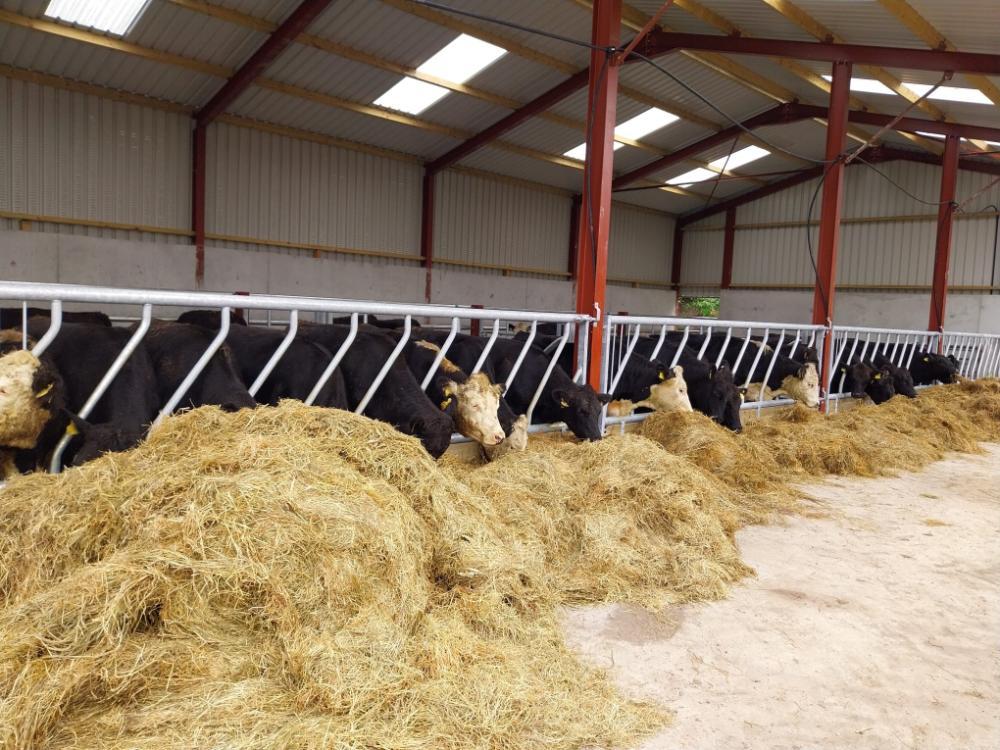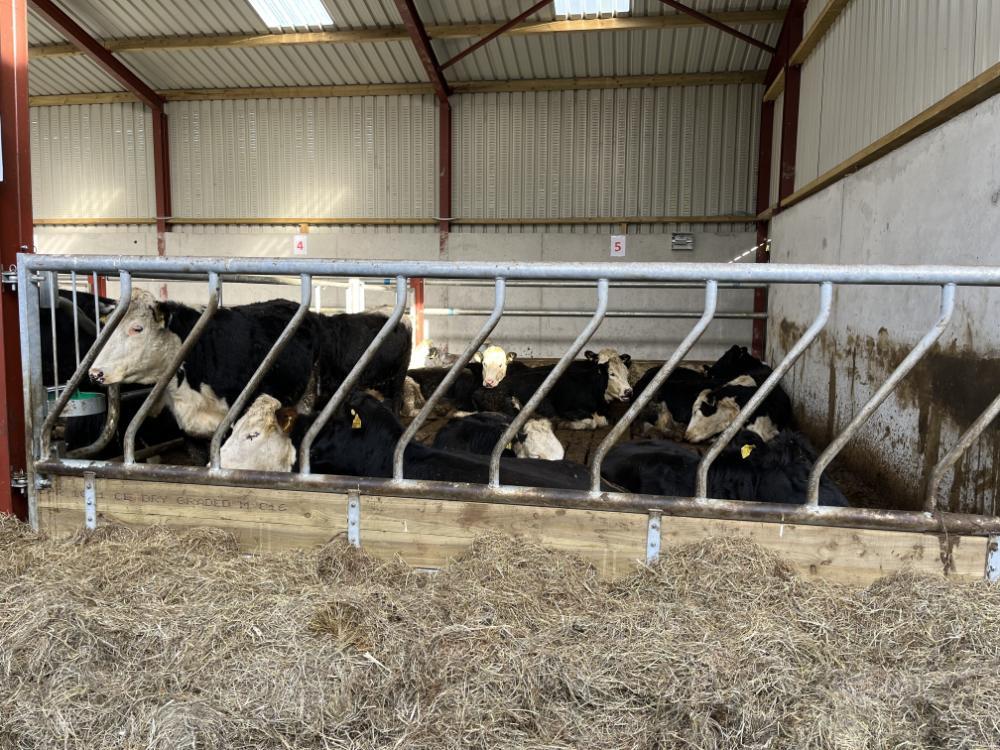Silage sample results
- Silage samples taken
- Results were quite good
- Diets balanced for the winter
Proinnsias held a Teagasc/AHI farm walk on his farm with the theme of ‘Getting Winter Ready’. Click here for the booklet.
Silage samples were sent for analysis from the farm. The results were as follows;
First cut
Second cut
Surplus silage
Based on these results the weanlings and store cattle can be fed the 73.4% DMD silage along with 1kg of a 14% crude protein ration. The finishing cattle can be fed the 72.24% DMD silage with 5.5kg of a 14% crude protein ration, but if feeding the 65.4% DMD silage this will have to be increased to 7kg of a 12% crude protein ration.
The finishing heifers are currently being fed 4.5kg of ration/head/day. Another pen are eating 2.4kg ration/head/day and the lightest pen of 2022 heifers are eating 1kg of an 18% CP ration to help boost their growth rates.

Figure 1: Finishing and store cattle are being housed in the new shed
Some of the 2023 calves (29) were weighed on 25th November. They averaged 227kg and gained 0.41kg per day since their previous weighing on 11th November.
34 of the 2022 born heifers were weighed on 25th November and averaged 413kg. Proinnsias was disappointed with their weight gains over the previous month and suspects that they had a heavy worm burden which they have now been treated for. The group of 6 purchased heifers averaged 458kg and they gained 0.53kg/day since 7th October.

Figure 2: Some of the lighter store cattle
As part of the ACRES scheme, Proinnsias submitted his list of non-productive investments in the form of an annual works plan. He selected a number of actions for environmental, biodiversity and aesthetic reasons. The actions included:
The owl and bat boxes are being applied for to provide nesting/roosting areas for them on the farm. The culvert will be installed across a lane where a nearby drain regularly over flows. This will prevent direct discharge of nutrients from livestock entering the watercourse as they are passing and will also avoid machinery having to pass through the water when it is over flowing.
New gates will be installed to allow easier movement of stock in and out of paddocks. The water troughs will help to improve grass management by being strategically placed at central parts of paddocks so that they can be easily subdivided if necessary.
The hedging and trees will provide a biodiverse habitat for birds and insects, and will also provide shelter and shade to the cattle when they are grazing the paddocks.
Proinnsias will have to await written approval of the plan before he can commence any works. All actions must be maintained for the 5 years of the contract.